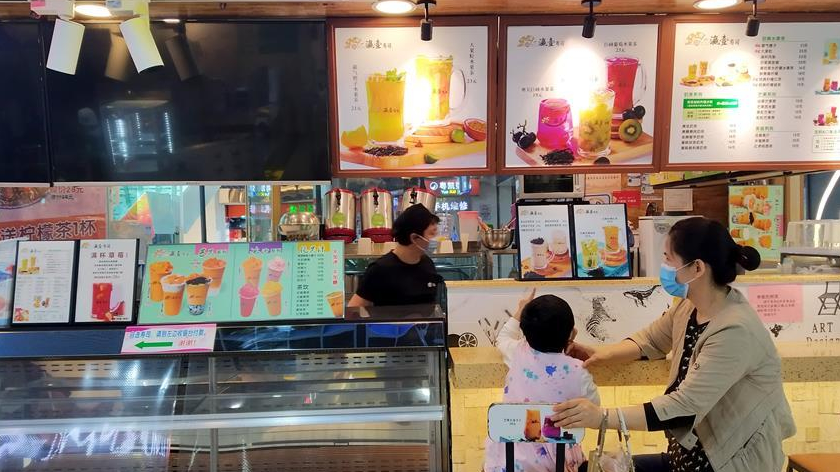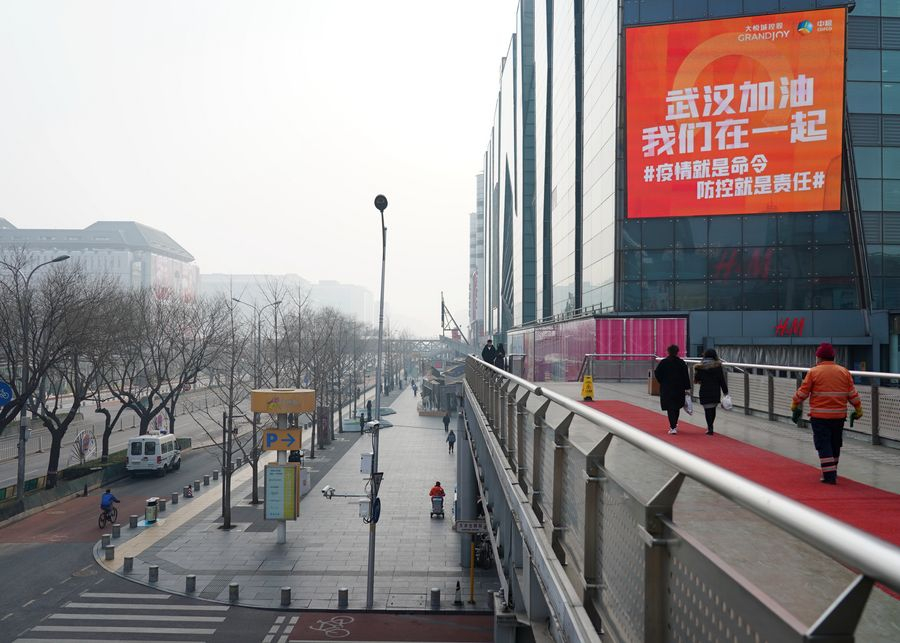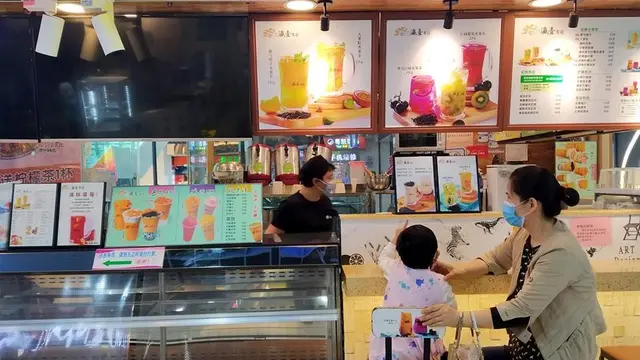
People consume drinks at a beverage shop in a shopping mall in Guangzhou, south China's Guangdong Province, March 16, 2008. /Xinhua
Editor's note: Matteo Giovannini is a finance professional at ICBC in Beijing and a member of the China Task Force at the Italian Ministry of Economic Development. The article reflects the author's views, and not necessarily those of CGTN.
The global landscapesince the outbreak of COVID-19has changed fast. The outbreakhada serious impact on China's national economy in the first quarter,causing the forced closure of entire industries with severe repercussions in terms of future business performance anditssurvival.
The most affected werethe small and medium sized enterprises, whichcannot afford the large scale and the geographical diversification of multinational companies, and those operating in industries such as tourism, aviation and luxury brands.
The Chinese authorities have declared the restarting of the economy after the virus has beencontained knowing well that one of the most important factors of the country's GDP is represented by consumption.
The importance of consumption in China's economy is linked to the rapid urbanization. At the core of this process, China's leadership has committed time and resources, through the issuance of an ad-hoc New Urbanization Policy, for the transformation of China from an export and investment-led economy into a domestic consumption-driven economy.
In this context,it is interesting to notice a social phenomenon occurring in these dayswhich isdenominated as "revenge spending," showinghow Chinese middle and high income consumers are behaving by trying to quickly regain their pre-COVID-19 life's habits.
The "revenge spending"is simply a way for people to express their feelings of liberation after being quarantinedforalong time, tighteningtheir belts and consuming only necessities.
The reopening of stores of a good number of important foreign brands, together with the commitment of some of them to make important investments for the development of their own business in China, has certainly contributed to a sense of optimism among the Chinese whohas immediately responded by going to the streets to feedtheir shopping starvation.

A placard showing support for Wuhan is seen on a building in the Xidan business area in Beijing, China, February 12, 2020. /Xinhua
"Revenge consumption"is expected to targetsomeirrational goods such as luxury products as a way to increase people's own self-esteem, immediately followed by consumption of entertainment.
The long queues seen on the streets in Beijing and Shanghai outside luxury brands such as Chanel, Gucci, Louis Vuitton and Salvatore Ferragamo represent a promising picture not only for the people that finally see the light at the end of the tunnel but also for the brick-and-mortar retail business owners that have a desperate need to restore their cash flow.
The "revenge spending"is expected to become a major force, if not the most important, in the initial recovery of Chinese economy and this will boost confidence in the domestic market.
In this regard it is notable to remember that in October 2003 after the SARS outbreak, which hit southern China and Hong Kong with a 10percent mortality rate, there was an immediate 200percentincrease in the number of flights at the first available holiday compared to the previous year. This showed how Chinese people reacted after a difficult period of time.
The current situation is not dissimilar to that of17 years ago. This situation is a ray of hope not only to Chinese offline retailers but also to the other countries' businesses considering that the spending wave is expected to move soon outside of China's borders once the virus is contained. Chinese tourists will start traveling again and visit other countries contributing with their purchases to the boost of global consumption.
(If you want to contribute and have specific expertise, please contact us at [email protected])
 简体中文
简体中文

